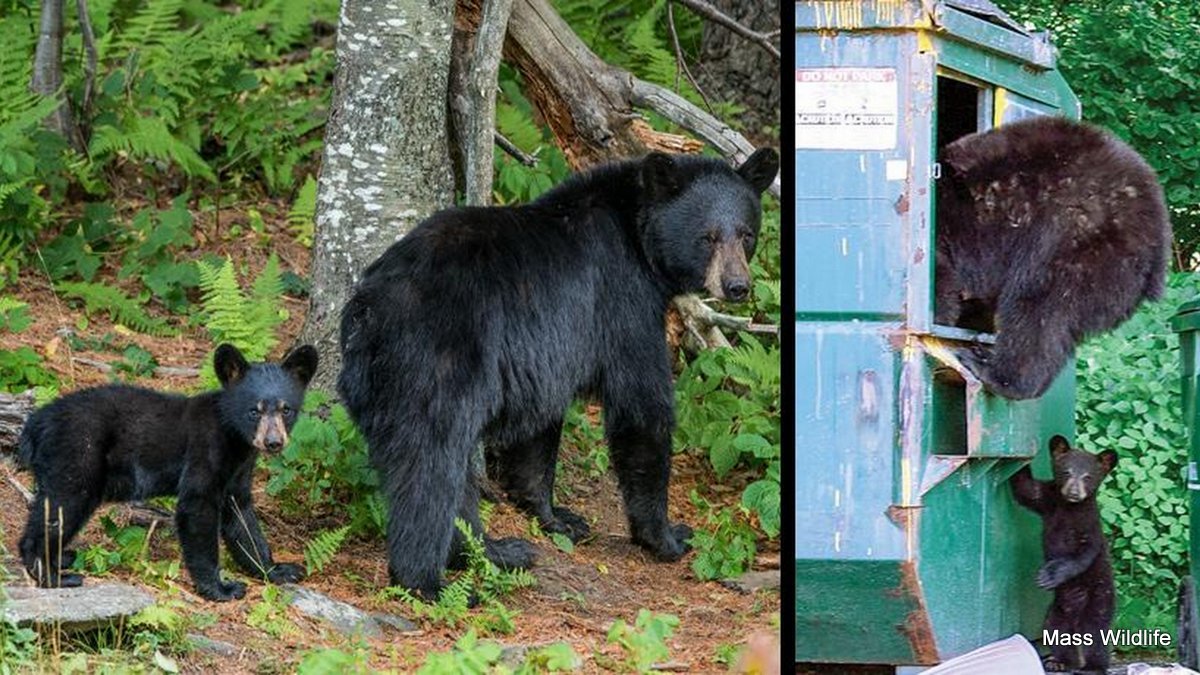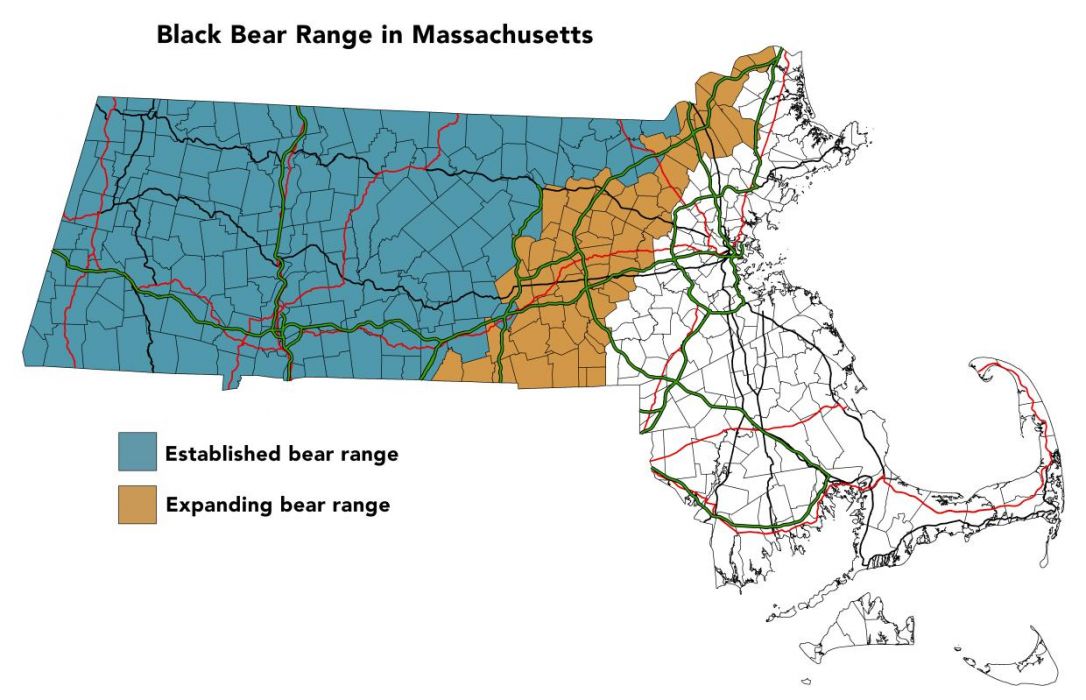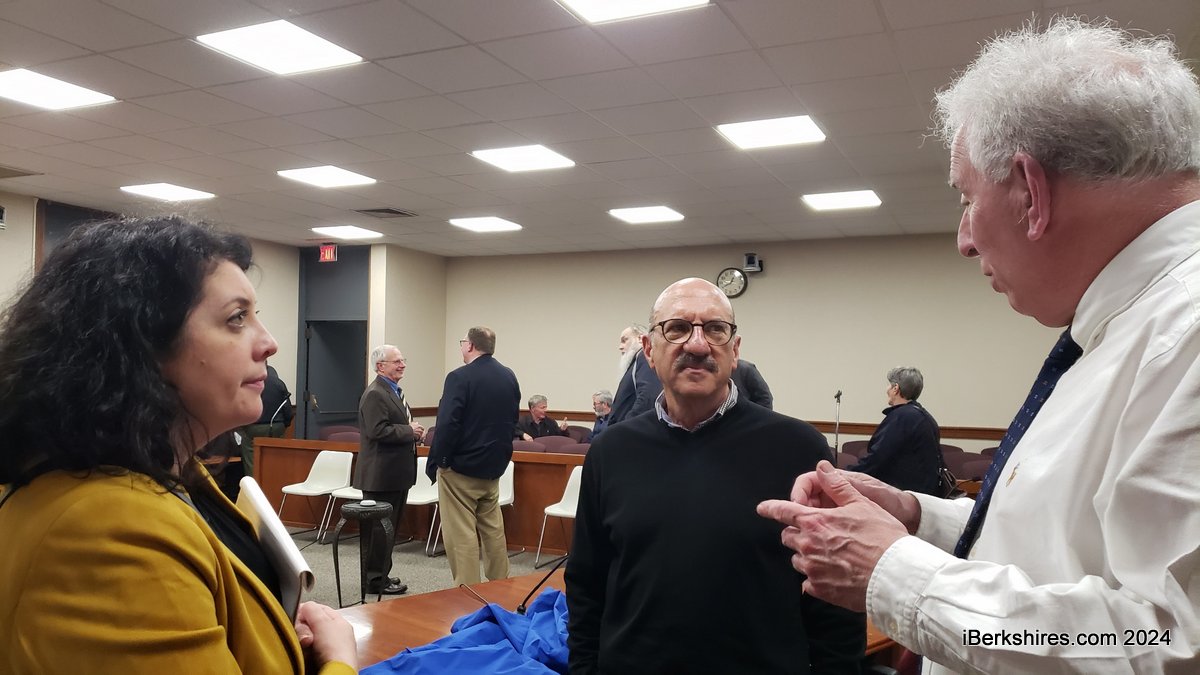
Never Thought You'd See a Bear? Think Again

It's summertime in Massachusetts, which means more people will be spending time outdoors. With the increasing number of black bears found in many areas of Massachusetts, it is important for all residents to know how to prevent problems.
While people living in Western Massachusetts have been coexisting with bears for years, others in the eastern part of the state may be surprised to learn that black bears likely live nearby as well. This summer, a young bear made headlines as it traveled throughout southeastern Mass, and over the last few years, MassWildlife has also confirmed reports of bears in Newton, Chelmsford, North Andover, Amesbury, and even Provincetown!
In the mid-1970s, the Massachusetts black bear population was estimated at under 100 individuals, and today there are now over 4,500 bears estimated to live across the commonwealth. As the bear range expands eastward toward the most densely populated communities of Massachusetts, bear sightings are increasing, and many people are asking themselves, "How dangerous are bears? Is it normal to see a bear in a neighborhood? What do I do if I encounter one?"
Taking a few easy, precautionary measures will help you avoid negative encounters with bears and other wildlife. Whether at home in your own backyard, hiking on a trail, or visiting a campground, it's important to be prepared while enjoying the outdoors.
At home
Bears often pass through residential areas where you may not expect to see them. Bears tend to spend more time in neighborhoods if there is food available.
- Remove or secure all potential food for bears, such as bird feeders, unsecured garbage, and compost piles.
- Protect backyard chicken coops or beehives with electric fencing.
- Clean greasy barbecues after each use.
- Feed pets indoors. The presence of a barking dog can trigger a bear to become aggressive; always keep dogs leashed, check your yard for bears before letting your dog out, and never let dogs chase or interact with bears.
At your campsite
Maintaining a clean campsite is key to enjoying your next outing.
- Store food and cooking gear in bear-proof containers separate from your sleeping area. Coolers are not bear-resistant.
- Put food scraps and fat drippings in closed containers, not the campfire.
In the woods
While bears are generally not aggressive and usually cautious of people, it's always important to respect bears and give them plenty of space if you encounter them in the woods.
- Always be aware of your surroundings. Normal trail noise will usually alert bears to your presence and prompt them to move without being noticed.
- If you see a bear, talk to it in a calm voice and slowly back away. Do not approach bears or intrude between a female bear and her cubs.
- Bears will sometimes "bluff charge" when cornered or threatened. Don't run from a charging bear; speak calmly and slowly back away.
- Keep pets leashed and supervised.
The best thing for people to do is educate themselves about bears and take action to prevent conflicts.
"As our bear population increases, people need to understand what it means to really co-exist with bears," said Dave Wattles, MassWildlife's black bear and furbearer biologist. "People need to change their behavior because bears aren't going to change theirs."
For more tips on living with black bears in Massachusetts, visit mass.gov/bears
Learn more:
- MassWildlife's website contains a wealth of information about black bears in Massachusetts, including tips for residents, research projects, conservation and management efforts, and more.
- Read a recent full-length article in Massachusetts Wildlife magazine by Jim Behnke, titled Massachusetts is Bear Country (2021).
Tags: bears, mass wildlife,
















